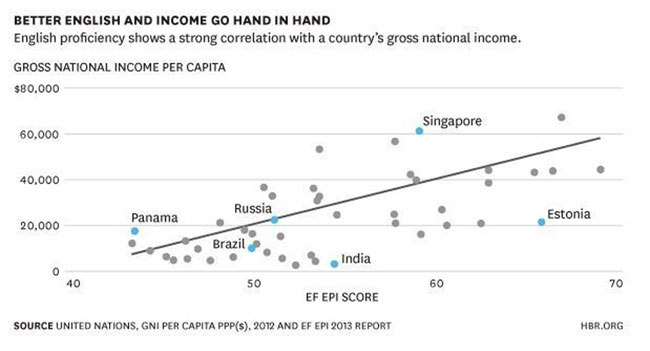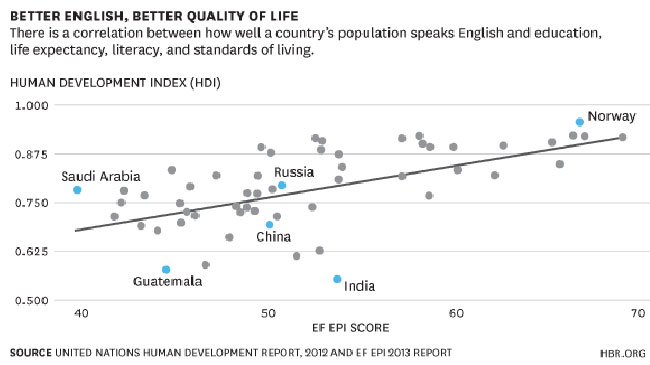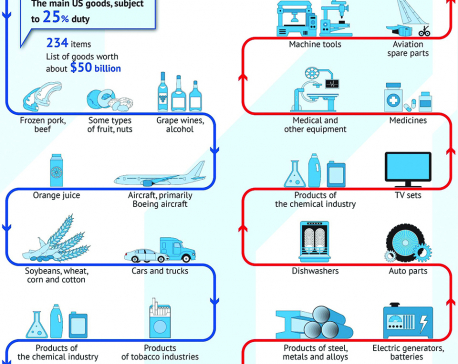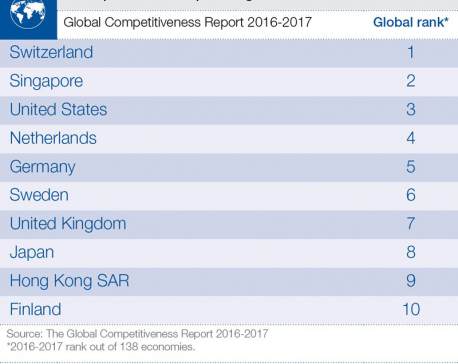
OR
Infographics: Link between English and economics
Published On: May 30, 2017 12:05 AM NPT By: Republica | @RepublicaNepal

Republica
We are a team of professional management and journalists — one of the best in the Nepali media. Our duty toward our readers is to provide them with impartial news, bold views, in-depth analysis and thought-provoking commentary. We shall do this without fear or favor, and we shall be guided by nothing but our conscience.news@myrepublica.com
More from Author
- Russia warns NATO nuclear facilities in Poland could become military target
- 16th Five Year Plan: Govt unveils 40 goals for prosperity (with full list)
- SC hearing on fake Bhutanese refugees case involving ex-deputy PM Rayamajhi today
- Clash erupts between police and agitating locals in Dhanusha, nine tear gas shells fired
- Forest fire destroys 13 houses in Khotang
Billions of people around the globe are desperately trying to learn English—not simply for self-improvement, but as an economic necessity. It’s easy to take for granted being born in a country where people speak the lingua franca of global business, but for people in emerging economies such as China, Russia, and Brazil, where English is not the official language, good English is a critical tool, which people rightly believe will help them tap into new opportunities at home and abroad.
Research shows a direct correlation between the English skills of a population and the economic performance of the country. Indicators like gross national income (GNI) and GDP go up. In our latest edition of the EF English Proficiency Index (EF EPI), the largest ranking of English skills by country, we found that in almost every one of the 60 countries and territories surveyed, a rise in English proficiency was connected with a rise in per capita income. And on an individual level, recruiters and HR managers around the world report that job seekers with exceptional English compared to their country’s level earned 30-50 percent higher salaries.
The interaction between English proficiency and gross national income per capita is a virtuous cycle, with improving English skills driving up salaries, which in turn give governments and individuals more money to invest in language training. On a micro level, improved English skills allow individuals to apply for better jobs and raise their standards of living.
This is one explanation for why Northern European countries are always out front in the EF EPI, with Sweden taking the top spot for the last two years. Given their small size and export-driven economies, the leaders of these nations understand that good English is a critical component of their continued economic success.
It’s not just income that improves either. So does the quality of life. We also found a correlation between English proficiency and the Human Development Index, a measure of education, life expectancy, literacy, and standards of living. As you can see in the chart, there is a cutoff mark for that correlation. Low and very low proficiency countries display variable levels of development. However, no country of moderate or higher proficiency falls below “Very High Human Development” on the HDI.

 Source:World Economic Forum
Source:World Economic Forum
You May Like This

Infographics: Trade war between US and China
Trade war between US and China ... Read More...

Infographics: Top 10 most competitive global economics
The top 10 most competitive global economics ... Read More...

Infographics: Should English be the official language of the world?
Should English be the official language of the world? ... Read More...

Just In
- Russia warns NATO nuclear facilities in Poland could become military target
- 16th Five Year Plan: Govt unveils 40 goals for prosperity (with full list)
- SC hearing on fake Bhutanese refugees case involving ex-deputy PM Rayamajhi today
- Clash erupts between police and agitating locals in Dhanusha, nine tear gas shells fired
- Abducted Mishra rescued after eight hours, six arrested
- Forest fire destroys 13 houses in Khotang
- First meeting of Nepal-China aid projects concludes
- Lungeli appointed as Minister for Labor and Transport in Madhesh province govt
















Leave A Comment